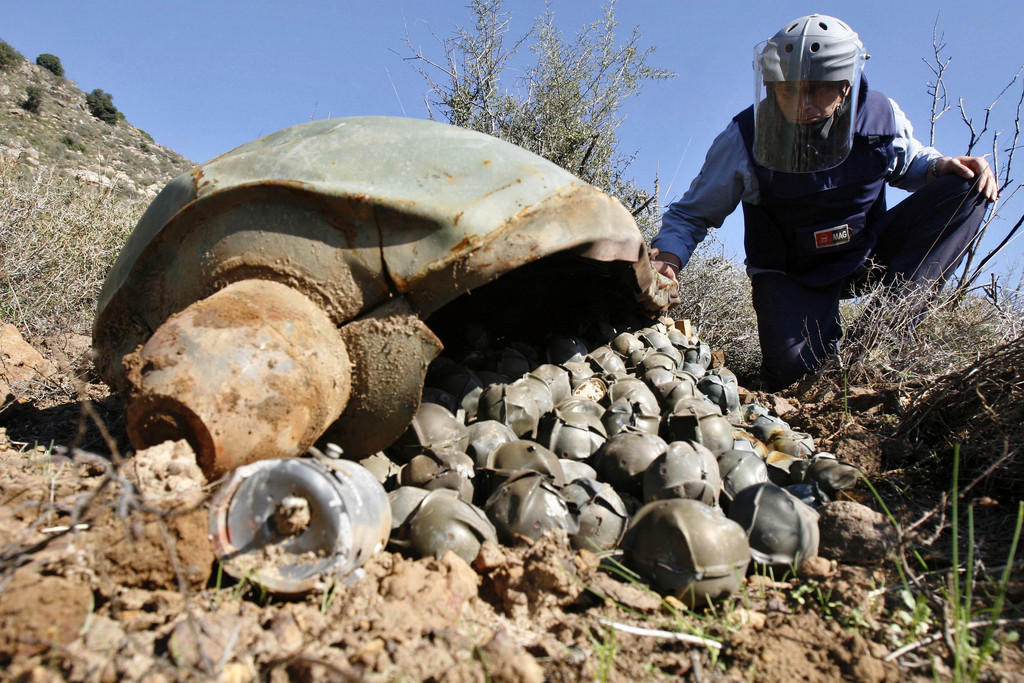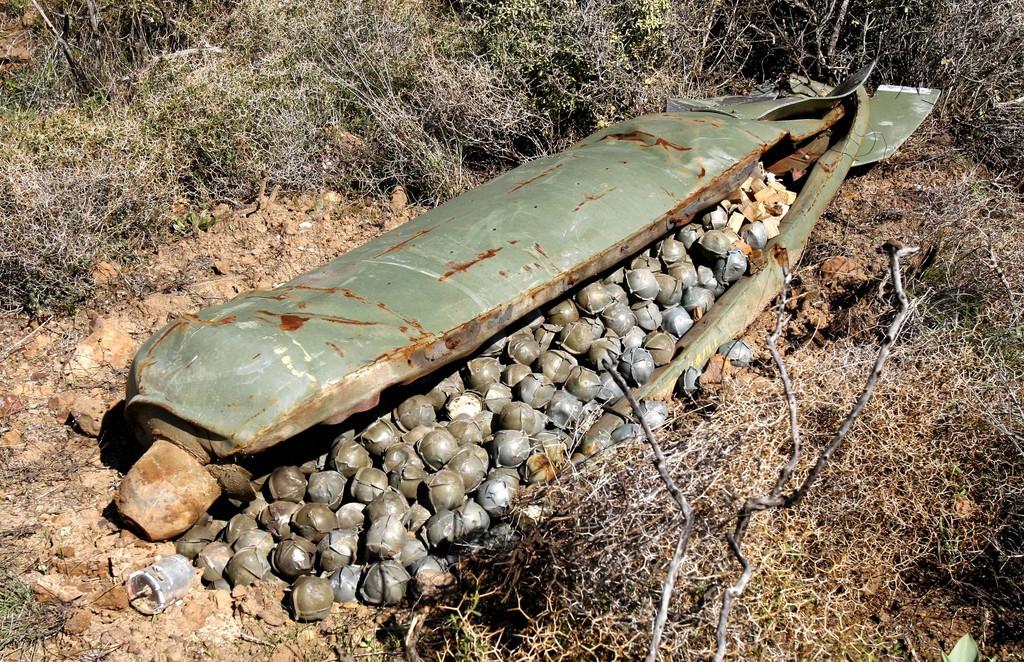Official: Internal review clears Swiss arms shipments

The head of a Swiss federal office says its handling of export permits for arms manufacturers is improving in the wake of a criminal probe into past shipments.
An internal review cleared a federal employee of wrongdoing after prosecutors questioned the handling of a Bernese arms manufacturer’s requests to ship weapons to Kazakhstan in 2008 and to New Zealand in 2009, said Marie-Gabrielle Ineichen-Fleisch, director of the State Secretariat for Economic Affairs, or SECO.
Three years ago, SECO switched its approval process from paper to an electronic system that “has led to an increase in the transparency of export controls”, Ineichen-Fleisch said in an interview with Swiss newspaper Neue Zürcher Zeitung published on Thursday.
SECO also insists that “the four-eyes principle applies to all transactions”, she said, adding that the employee who was reviewed no longer deals with requests from the Bernese arms manufacturer.
Legal wrangling
Swiss justice authorities have been scrutinising SECO’s approval process for arms export applications after finding evidence of an illegal shipment.
In 2008, a Bernese arms manufacturer, whose identity has not been made public, filed a request to export sniper rifles and other weapons to Kazakhstan. SECO, an office for economic and labour market policy that also controls arms exports, refused the request based on human rights issues.
A year later, the arms manufacturer filed an almost identical request, this time for New Zealand, authorities say, and those weapons illegally wound up in Kazakhstan.
The Federal Criminal Court ruled in March that the arms manufacturer violated the federal War Weapons Act, concluding that SECO should have conducted a more detailed review of the 2009 application.
That confirmed a 2014 verdict against the arms manufacturer, who had appealed the verdict but then withdrew the appeal shortly before trial.
Internal procedures
Federal prosecutors opened the case against the arms manufacturer in February 2014, acting on a tip from German authorities. It had come to light in a German criminal case that Swiss-made weapons exported to New Zealand had been delivered to Kazakhstan’s anti-terrorist unit known as “Arystan”.
That shipment, approved by SECO in August 2009, included six sniper rifles, 18 grenades, 1,020 tear gas canisters and 2,020 smoke bombs. But it was based on an improper export certificate. Various Swiss news media reviewed the documents and reported on them during this past week.
Those documents showed that SECO staff had clear indications that the weapons were intended for re-export, according to news reports. The prosecutor’s office told the Swiss News Agency it could not divulge more information about a possible criminal probe involving a SECO employee, whose communication with the arms manufacturer was seen as “unnecessarily familiar”.
Ineichen-Fleisch said the 2008 and 2009 requests were not “substantively” identical and that during the interval of time between those two requests, SECO “handled around 2,700 export applications”.
“This large quantity alone, but also with regard to the time elapsed between the two applications, makes it difficult to identify any correlation between the two transactions,” she said. “It goes without saying that SECO maintains a professional approach to its customers. This also includes a certain formal distance from the applicants.”
No wrongdoing
However, SECO takes the matter very seriously, which is why she opened a disciplinary review of the employee starting in mid-April, Ineichen-Fleisch added. The review was completed just last week and found the employee had not violated any labour laws, the only issue that was at question.
“Export requests for the supply of war materials to Kazakhstan have been very cautiously granted because of the political situation in the country. The few approved applications are exceptions,” she said. “They concern, in the first instance, the supply of small arms for the protection of the president or the anti-terrorist unit, Arystan. But because of suspicions about members of this unit, SECO at the time, in agreement with foreign ministry, decided not to allow deliveries to Kazakhstan.”
swissinfo.ch and agencies/jmh

In compliance with the JTI standards
More: SWI swissinfo.ch certified by the Journalism Trust Initiative












You can find an overview of ongoing debates with our journalists here . Please join us!
If you want to start a conversation about a topic raised in this article or want to report factual errors, email us at english@swissinfo.ch.